January 5

0871 The Danes are defeated by the West Saxons under Ethelred and Alfred the Great at the battle of Ashdown.
1066 Harold is crowned king of England following the death of his brother-in-law Edward the Confessor, and is immediately threatened by rival claimants to the throne. England's last Anglo-Saxon king, Harold is crowned just nine months before his death at the Battle of Hastings.
1412 Birth: Joan of Arc (Jeanne D’Arc), in Domremy-la-Pucelle, France, Maid of Orleans, French heroine; will liberate the city of Orleans from the English, and will be burnt at the stake as a witch 31 May 1431. Note: The house where Joan of Arc was born, which was bought in 1818 by the department of the Vosges and classified as a historic monument in 1840, has been preserved and restored.

1646 In the first record of a legal divorce in the American colonies, Anne Clarke of the Massachusetts Bay Colony is granted a divorce from her absent and adulterous husband, Denis Clarke, by the Quarter Court of Boston, Massachusetts.
1655 Birth: Jacob [Jacques] Bernoulli, first of the Bernoulli family of Swiss mathematicians. He will introduce the first principles of the calculus of variation. Bernoulli numbers, a concept that he will develop, will be named after him. Jacob Bernoulli's first important contributions will be a pamphlet on the parallels of logic and algebra (1685), work on probability in 1685 and geometry in 1687.

1745 Birth: Jacques Étienne Montgolfier, inventor, with his brother, Joseph-Michel Montgolfier; French pioneer developers of the hot-air balloon and who will conduct the first untethered flights. An initial experiment with a balloon of taffeta filled with hot smoke will be given a public demonstration on 4 June 1783. This will later be followed by a flight carrying three animals as passengers on 19 September 1783, shown in Paris and witnessed by King Louis XVI. On 21 November 1783, their balloon will carry the first two men on an untethered flight - the first manned balloon flight. Étienne will also develop a process for manufacturing vellum.

1759 George Washington weds the widow Martha Dandridge Custis.

1781 US Revolutionary War: Turncoat Benedict Arnold's Loyalist forces inflict significant damage to Virginia's capital city by razing buildings and a foundry and destroying or capturing tobacco, gunpowder, and other commodities.
1786 Death: Jean-Étienne Guettard, French geologist, mineralogist. The first to survey and geologically map France. Also first to identify several fossil species from the Paris area.
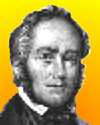
1795 Birth: Anselme Payen, French chemist; will make important contributions to industrial chemistry and discover cellulose, a basic constituent of plant cells. His father's factories will produce various chemicals, and refined sugar, so Payen will study science. In 1815, at the age of 20, he will be made manager of his father's plant for refining imported crude borax. There he will develop a synthesis for borax from soda and boric acid and in 1820, create a new industry which will market the synthetic product at a third of the price of the refined natural borax. When his father dies in 1820, Payen will take over the family business. In 1833, he will discover diastase, the first enzyme to be discovered.

1799 Birth: Jedediah Smith, explorer; will help to create the Oregon Trail, the first American to reach California by land and the first to travel the Pacific Coast from San Diego to Canada by land. He will be killed by Comanche warriors in the spring of 1831 while looking for water on the Santa Fe Trail.
1822 Birth: Heinrich Schliemann, German archaeologist; will discover the ruins of ancient Troy, Mycenae, and Tiryns. He is often considered to be the modern discoverer of prehistoric Greece. Ignoring scholarly derision, he will excavate Hissarlik on the Asia Minor coast of Turkey, finding ruins of nine consecutive cities. The second oldest (Troy II), will yield a hoard that Schliemann romantically called Priam's Treasure. His spectacular finds in Greece at Mycenae (1874-76), Orchomenos in Boeotia (1880), and Tiryns (1884-85) will establish him as the discoverer of Mycenaean civilization.
1838 The telegraph is demonstrated for the first time in public at the Speedwell Iron Works in lovely Morristown, New Jersey. The person demonstrating the new invention is the telegraph's inventor, Samuel F. B. Morse and his partner, Alfred Vail.

1842 Birth: Clarence King, American geologist and mining engineer who will direct the survey of the 40th parallel (1867-78), an intensive study of the mineral resources along the site of the proposed Union Pacific Railroad, recorded in his classic volume, Systematic Geology (1878). Will make the first discovery of glaciers in the US while studying the extinct volcanoes of Mounts Shasta, Rainier, and Hood and is credited with introducing the use of contour lines on maps to indicate topographic features. Will also be instrumental in forming the US Geological Survey, and will be appointed its first head (1879-81).

1876 Birth: Konrad Adenauer, the first president of postwar Germany.
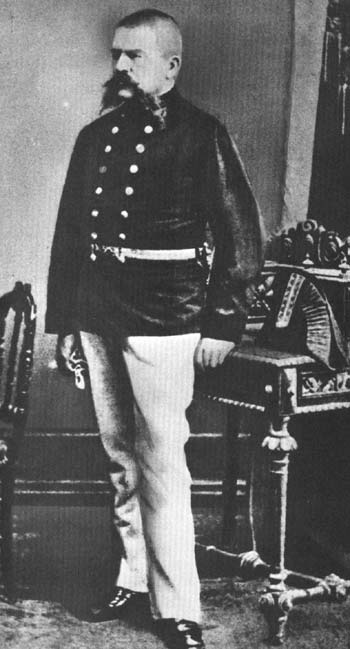
1877 Alois Schicklgruber's name officially and legally becomes Alois Hitler. (See June 7)
1878 Birth: Carl August Sandburg, author; Abraham Lincoln.
1896 An Austrian newspaper, the Wiener Presse, reports the discovery by German physicist Wilhelm Roentgen of a type of radiation that comes to be known as "X-rays."
1898 Volkishness: Guido von List is visited by the old catholic bishop of Bohemia, Nittel von Warnsdorf, who congratulates him on "a new epoch in the history of religion." (Balzli; Roots)
1906 Birth: George Ledyard Stebbins, American botanist and geneticist; will be known for his application of the modern synthetic theory of evolution to plants; the first scientist to artificially synthesize a species of plant capable of thriving under natural conditions.
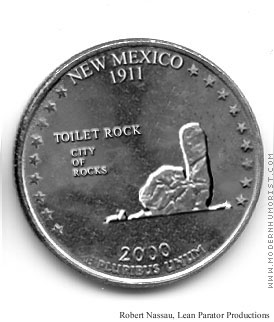
1912 'The Land of Enchantment', the territory acquired by the US as a result of the Mexican War, enters the United States of America this day as New Mexico, the 47th state. New Mexico is also referred to as the Sunshine State, but that irritates the residents of the Sunshine State of Florida. Santa Fe, the oldest city in New Mexico, is the state capital and has been the capital of the area since 1610. The state bird is the roadrunner, not the cartoon, but the real thing. New Mexico has a multitude of state symbols including its own fossil - coelophysis, plus the state flower - yucca, tree - pinon, animal - black bear; vegetables - chili and frijol, gem - turquoise, and insect - tarantula hawk wasp. The state motto is in latin - Crescit eundo - which translates to 'It grows as it goes'.

Drexler
1919 The German Worker's Party (DAP) party is formally founded in Munich at the Furstenfelder Hof tavern by Anton Drexler and others. Drexler's constitution is accepted by 24 men, mostly from the locomotive works where Drexler is employed, and he's elected chairman. Drexler is also an active member of the Thule Society. Contrary to popular belief, Hitler has nothing at all to do with the parties founding.

1919 Death: Theodore Roosevelt, at Sagamore Hill. "...As President, Roosevelt held the ideal that the Government should be the great arbiter of the conflicting economic forces in the Nation, especially between capital and labor, guaranteeing justice to each and dispensing favors to none. Roosevelt emerged spectacularly as a "trust buster" by forcing the dissolution of a great railroad combination in the Northwest. Other antitrust suits under the Sherman Act followed. Roosevelt steered the United States more actively into world politics. He liked to quote a favorite proverb, "Speak softly and carry a big stick..." Aware of the strategic need for a shortcut between the Atlantic and Pacific, Roosevelt ensured the construction of the Panama Canal. His corollary to the Monroe Doctrine prevented the establishment of foreign bases in the Caribbean and arrogated the sole right of intervention in Latin America to the United States. He won the Nobel Peace Prize for mediating the Russo-Japanese War, reached a Gentleman's Agreement on immigration with Japan, and sent the Great White Fleet on a goodwill tour of the world. Some of Theodore Roosevelt's most effective achievements were in conservation. He added enormously to the national forests in the West, reserved lands for public use, and fostered great irrigation projects. He crusaded endlessly on matters big and small, exciting audiences with his high-pitched voice, jutting jaw, and pounding fist. "The life of strenuous endeavor" was a must for those around him, as he romped with his five younger children and led ambassadors on hikes through Rock Creek Park in Washington, D.C. Leaving the Presidency in 1909, Roosevelt went on an African safari, then jumped back into politics. In 1912 he ran for President on a Progressive ticket. To reporters he once remarked that he felt as fit as a bull moose, the name of his new party. While campaigning in Milwaukee, he was shot in the chest by a fanatic. Roosevelt soon recovered, but his words at that time would have been applicable at the time of his death in 1919: "No man has had a happier life than I have led; a happier life in every way..."
1923 The US Senate debates the benefits of Peyote for the American Indian.

1926 Volishness: Jorg Lanz von Liebenfels purchases the ruined 13th century church of Szent Balazs, near the village of Szentantalfa on the northern shore of Lake Balaton, as the new seat for the ONT priory of Marienkamp. Hungarian ONT brothers Ladislaus and Wilhelm are appointed as the priory's keepers. Around this time, Detlef Schmude returns to the ONT priory at Hollenberg after eighteen months in Persia. (Roots)
1929 Weimar: Hitler appoints Heinrich Himmler to replace Erhard Heiden as head of the SS. The organization has fewer than 300 members and an independent SS leader, Kurt Deluege, in Berlin. (Secrets; The SS, Time-Life)
1929 Alexander I abolishes his country's constitution and institutes absolute rule. He then changes his title and calls himself king of Yugoslavia.

1933 Death: The 30th president of the United States [1923-1929], Calvin Coolidge, dies in Northampton, Massachusetts, at age 60. The story goes that when a waiter in a restaurant informed a table of costumers that Silent Cal was dead, one woman responded, "How can they tell?"
1934 Church and Reich: Catholic worshippers are told at services that according to Catholic doctrine it is forbidden to volunteer for sterilization or apply for the sterilization of another. "We appreciate every consideration for the basic principle." (Lewy)
1934 George Tatarescu, Romania's new prime minister, promises to eliminate antisemitism throughout the nation.
1935 The American Jewish committee reports that the Jewish situation in Austria has worsened since Kurt von Schuschnigg took over the Chancellorship.
1937 The Zionist Organization in Poland votes to support the Polish Socialist parties in all future elections. (Edelheit)
1938 US Secretary of State Cordell Hull declares that America cannot intervene in Romania's internal affairs.
1939 Polish Foreign Minister Joseph Beck confers with Hitler at Berchtesgaden. Hitler says he is considering a formula that would make Danzig politically German and economically Polish, and that he is ready to give a formal and clear guarantee for the German-Polish frontiers.
1940 Holocaust: Professor Lenz sends a memorandum to Pancke, chief of the RuSHA, entitled: "Remarks on resettlement from the point of view of safeguarding the race."
1940 Church and Reich: Cardinal Hlond submits a new and detailed report to Pius XII on the deportations and arrests of Polish priests, the closing of churches and the brutal treatment meted out to the Polish population. (Lewy)

1941 WW2: President Roosevelt calls for the "Four Freedoms" in his State of the Union address to Congress, again referring to America as the "arsenal" of democracy. "...In the future days, which we seek to make secure, we look forward to a world founded upon four essential human freedoms. The first is freedom of speech and expression--everywhere in the world. The second is freedom of every person to worship God in his own way--everywhere in the world. The third is freedom from want--which, translated into world terms, means economic understandings which will secure to every nation a healthy peacetime life for its inhabitants-everywhere in the world. The fourth is freedom from fear--which, translated into world terms, means a world-wide reduction of armaments to such a point and in such a thorough fashion that no nation will be in a position to commit an act of physical aggression against any neighbor--anywhere in the world. That is no vision of a distant millennium. It is a definite basis for a kind of world attainable in our own time and generation. That kind of world is the very antithesis of the so-called new order of tyranny which the dictators seek to create with the crash of a bomb. To that new order we oppose the greater conception--the moral order. A good society is able to face schemes of world domination and foreign revolutions alike without fear. Since the beginning of our American history, we have been engaged in change -- in a perpetual peaceful revolution -- a revolution which goes on steadily, quietly adjusting itself to changing conditions--without the concentration camp or the quicklime in the ditch. The world order which we seek is the cooperation of free countries, working together in a friendly, civilized society. This nation has placed its destiny in the hands and heads and hearts of its millions of free men and women; and its faith in freedom under the guidance of God. Freedom means the supremacy of human rights everywhere. Our support goes to those who struggle to gain those rights or keep them. Our strength is our unity of purpose. To that high concept there can be no end save victory..."
1942 WW2: Today is the deadline for 'enemy aliens' in San Francisco to surrender to the Western Defense Command radio transmitters, short-wave receivers and precision cameras.
1942 WW2: 55 German tanks reach North-Africa.

1943 WW2: William H. Hastie, civilian aide to the secretary of war, resigns to protest segregation in armed forces.
1945 WW2: Germans units counterattack north of Strasbourg.
1945 WW2: Field Marshal von Runstedt again requests permission to withdraw from the Ardennes. Hitler again refuses.

1945 Holocaust: Several hundred Jewish women are evacuated by train from the forced labor camp at Sered in Slovakia to Ravensbrück, north of Berlin. (Atlas)
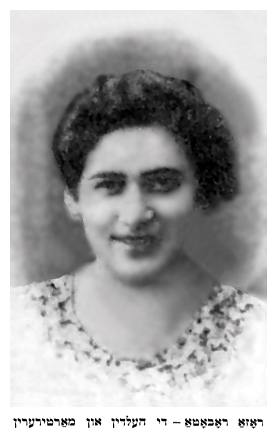
1945 Holocaust: Rosa Robota, a member of the Jewish underground in Auschwitz, is executed by the Germans for her part in the unsuccessful Sonderkommando revolt in Birkenau.
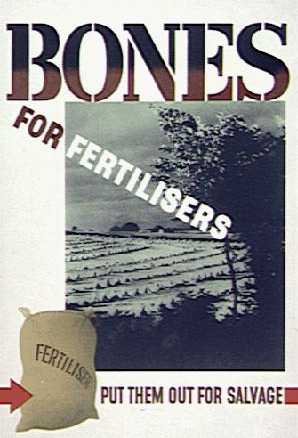
1945 WW2: The Soviet Union recognizes the Lublin Committee as the Provisional Government of Poland. The US and Britain continue to publicly recognize the exile government in London. Poles continue to die daily.
1945 WW2: Fighting between the British and Greek Communists come to an end in Athens.
1945 World War II: The first kamikaze's are launched.
1969 President Charles de Gaulle imposes a total ban on French arms supplies to Israel.

1975 Death: Gottlob Berger, Himmler's 'racial selection' expert.
1984 The 100th US Congress convenes with Democrats controlling the Senate, and thus both houses, for the first time under the Reagan administration.
1987 Ronald Reagan proposes the first trillion dollar US budget.
1990 Poland's Communist Party leaders give the green light to its dissolution and replacement by a non-Marxist party.
1992 President Zviad Gamsakhurdia flees Georgia after a bloody two-week power struggle, leaving his parliament burning and in the hands of jubilant rebel gunmen.

1994 US figure skater Nancy Kerrigan (above, right) is clubbed on the right knee by a man who then flees the scene. The attack, which will force Kerrigan to withdraw from the US Figure Skating Championship, is eventually traced to four men with links to her leading rival, Tonya Harding (above, left).
2002

2005

2005

2005

2005

2005

Visit:
 Visit:
Visit:

Click Here to email the History: One Day At a Time webmaster.































 Visit:
Visit:
